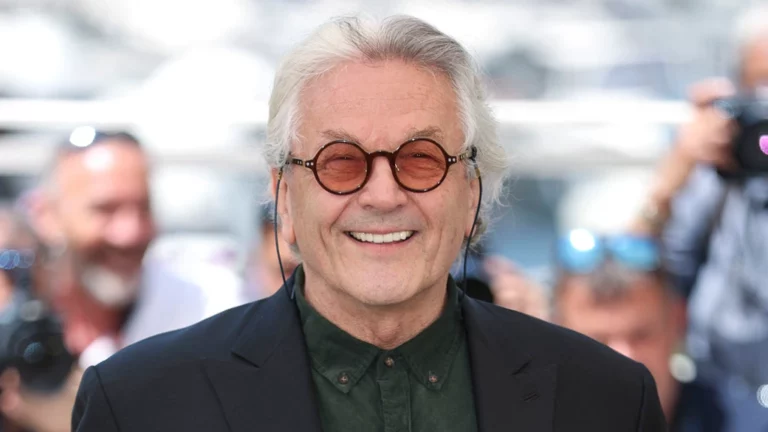George Miller, director of Mad Max: Fury Road, recently revealed his top five favorite films and they are as eclectic as he is.
Legendary director George Miller recently talked with Rotten Tomatoes about his top five favorite films, with an extra one tacked on the end.
His favorite films may seem eclectic and unrelated but while Miller discusses them, he touches on different aspects of each and it’s almost as if the films all makeup different pieces of a larger puzzle.
The director is known for his movies such as Mad Max: Fury Road and Happy Feet with his latest venture coming in the form of the Tilda Swinton, Idris Elba-led Three Thousand Years of Longing.
Many of his films are favorites of fans across the world, so it may be interesting to know what films George Miller views as his own favorites.
Pinnochio
“I don’t remember when I first saw it. It was in the ’50s sometime, and it was so rich in its content in its execution. It’s one of those things that it sears itself into your memory. I don’t know how many times I’ve seen it, but I can remember virtually every shot, because it was such a rich and nourishing story. It was virtually about everything that you need to know in life about becoming a human being.”
The Godfather, Part II
“When I saw that film, it felt like it was one of the most complete films I’ve seen. Again, rich, sprawling. Not one dissonant frame. That’s a film I’ve seen many times, simply because if it happens to be on somewhere, I just go back to it. So I know every shot, every frame.”
Love Film & TV?
Get your daily dose of everything happening in music, film and TV in Australia and abroad.
M*A*S*H
“I remember the experience of seeing it. I walked past this theater, and I saw a poster, which was two female legs and the “V” sign. It was during the Vietnam War, and I walked into the cinema and I saw a film unlike any that I’d seen before. It seemed to resonate with the times very much, even though it was set in Korea. Its tone was ironic, but it somehow seemed deeply truthful and accurate according to the times. I walked out of the cinema into the daylight and I walked straight back in and saw it a second time.
It made me feel – and at that point, I was interested in cinema but without any notion of making films – but it left me with such a powerful feeling of the potential of cinema to take you to places and somehow speak to you.”
The Battle of Algiers
“I walked down the street [after seeing M*A*S*H] and I walked past another cinema where my fourth film was playing. And it was getting towards evening at that time; I was meant to be at university, but I was skipping class. I knew nothing of the film, and again I had the same experience that I had with M*A*S*H. I saw the film and it took me to a place completely different from the film I’d just seen twice. I didn’t have the money to go back and watch this a second time. It was at night and I had to get home, but that day was an incredibly incredible cinema-going experience for me, because [it was] so different. And yet with both those films, there was much more to them than met the eye. There was a lot of iceberg under the tip. There were so many resonances; they can be revisited over and over and over again, and you’d still get that same experience and more.”
Boyhood
“The circumstance of making the film and the truth of that film that you saw and the feelings it gave, having become a parent and gone through that experience myself, had deep resonances to me on something where there was no fantasy in the film. There was no flamboyance or extravagance. But its resonances were very powerful.”
Groundhog Day
“I remember seeing it several times, mainly to try to unfold its mysteries because it affected me as a full human being. It affected me visually, emotionally, and intellectually. It’s very broad, universal. It went from the specific of that story to very universal ideas, which all good stories do. It was expansive in that way, yet it felt complete. It took its premise and its conceit of the repetitiveness of that day and took it as far as any story could go, so it became mythological and spiritual all the way through.
I think all of the stories I’m talking about have that quality about resonance. And all of these still retain a degree of mystery for me. That’s why I keep coming back to them.”
George Miller’s Three Thousand Years of Longing is now in theaters. Watch the trailer below:

































